We interviewed 1-2-3 VFX general producer Ilya Shutov. Ilya took part in the creation of many sensational films and TV series — ‘To the Lake’, ‘The Blackout’, ‘Dead Mountain — The Dyatlov Pass Incident’, ‘Cybervillage’, ‘Kitchenblock’. We discussed post-production processes, new creative projects, as well as the possibilities of professions in the field of visual effects.

Over the past three years, the audience has had the chance to see a number of projects in which you were involved, including The Blackout, To the Lake, Dyatlov Pass, and Pishcheblok (Food Unit). Seems like you’ve been really busy. Or has it always been this way?
It has always been this way. I have spent the past two years working solely at 1-2-3 Production, a company my colleagues and I founded three and a half years ago. That was also when we founded the post-production studio 1-2-3 VFX.
Before creating 1-2-3 VFX, we worked on such projects as Gogol, The Icebreaker, and Chernobyl: Zone of Exclusion. There were many projects, including the one called American Gods, for which we created characters and some of the visual effects.
If you google Ilya Shutov, you will get lots of varied search results. For example, did you know you have an IMDb page?
Yes, I do.
It lists the large-scale projects you worked on as a VFX supervisor and VFX director. For example, KinoPoisk also lists you as an actor for the TV series Dyatlov Pass, where you played a search and rescue specialist. Your Facebook page says you are the CEO of CG Crew. So what do you actually do? Where can one find the most up-to-date information?
For four years, from 2007 to 2011, I was the director of the VFX department of a company called Cinemateca. As for CG Crew, my colleagues and I founded it back in 2008. It was a small studio I had started some time ago. Then Evgeny Barulin joined us, and we started pouring our efforts into the CGC brand, under which we worked on Fartsa, Dark World: Equilibrium, and a bunch of other TV series. At the time, we were also working on the TV series Sparta. We collaborated a lot with the Sreda company, and were involved in a large number of projects together.
To answer your question, it has been a while since I have updated my Facebook page. I have no time nor desire for it. The same goes for other social networks. I prefer to spend my time talking to people, attending business meetings, or relaxing, and not scrolling through social networks or updating my pages there. Sometimes I open my Instagram feed to see the latest news, because pictures are way more useful than posts. I can see that someone got married, celebrated their birthday, or launched a project without having to read long, often meaningless, and not always necessary posts, as well as comments and fights in them.
Is a strong personal brand necessary for finding new projects and for work in general? For example, you don’t need one, do you? Everyone knows who you are and what you do, and everyone has heard of your projects.
From the moment I started managing Cinemateca, I never had any problems finding orders or projects. They were always available in great numbers. Thirteen years later, I still always have something to do. Starting from 2004, there hasn’t been a time where I would sit down and say, “I have nothing to do, I should go find a project.” Projects have always appeared in huge numbers on their own, and they still do.
Sometimes we have to turn them down, because 1-2-3 VFX and 1-2-3 Production are one company. We work exclusively for Gazprom-Media, TV-3 and TNT TV channels, and for ourselves. We have good friends at Sreda and at the KION film company, which MTS has recently founded.
We helped them with visual effects and post-processing for some of their projects: Sreda — with Pischeblok, and KION — with Klinika Shchastya (Clinic of Happiness) and Otets Sergiy (Father Sergiy).
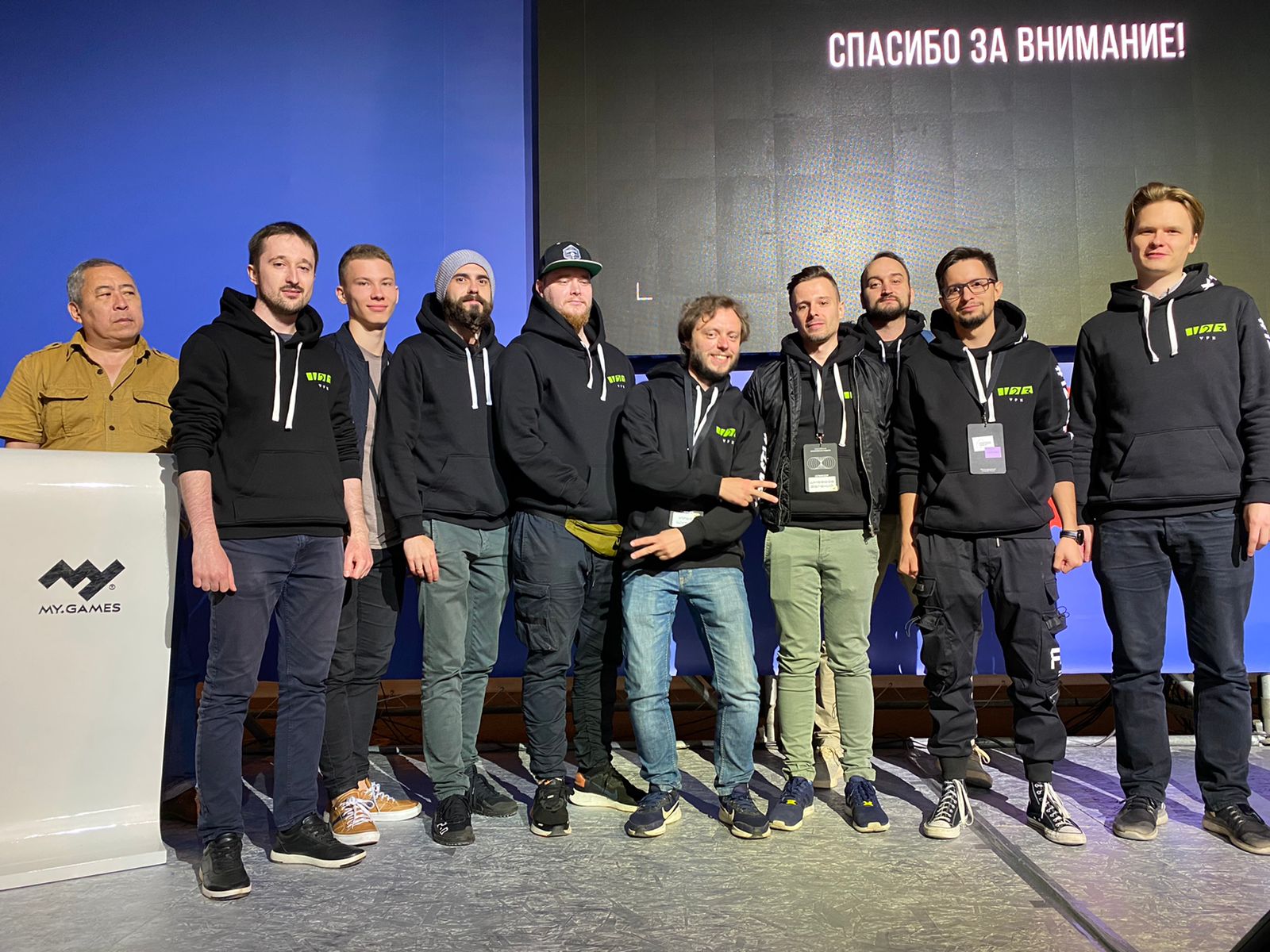
Did you have any projects during the pandemic?
Of course. We had even more projects than usual, because a lot of material had already been filmed. Post-production begins almost right after the main filming process. Since the beginning of the pandemic, we have been working on projects filmed during the pre-COVID times. Of course, we were unable to film anything during the strict lockdown, which lasted for about two months.
However, we still managed to remotely shoot the #SidYadoma (#StayingHome) TV show, the brainchild of Alexander Robak. And as soon as the strict lockdown was over, we immediately began shooting our next project.
As a VFX company, you don’t have a separate website. Do you not need one?
That’s right, we don’t need one, because 1-2-3 VFX is part of 1-2-3 Production. 1-2-3 Production has its own brand, which we promote everywhere. And, of course, it also has a website.
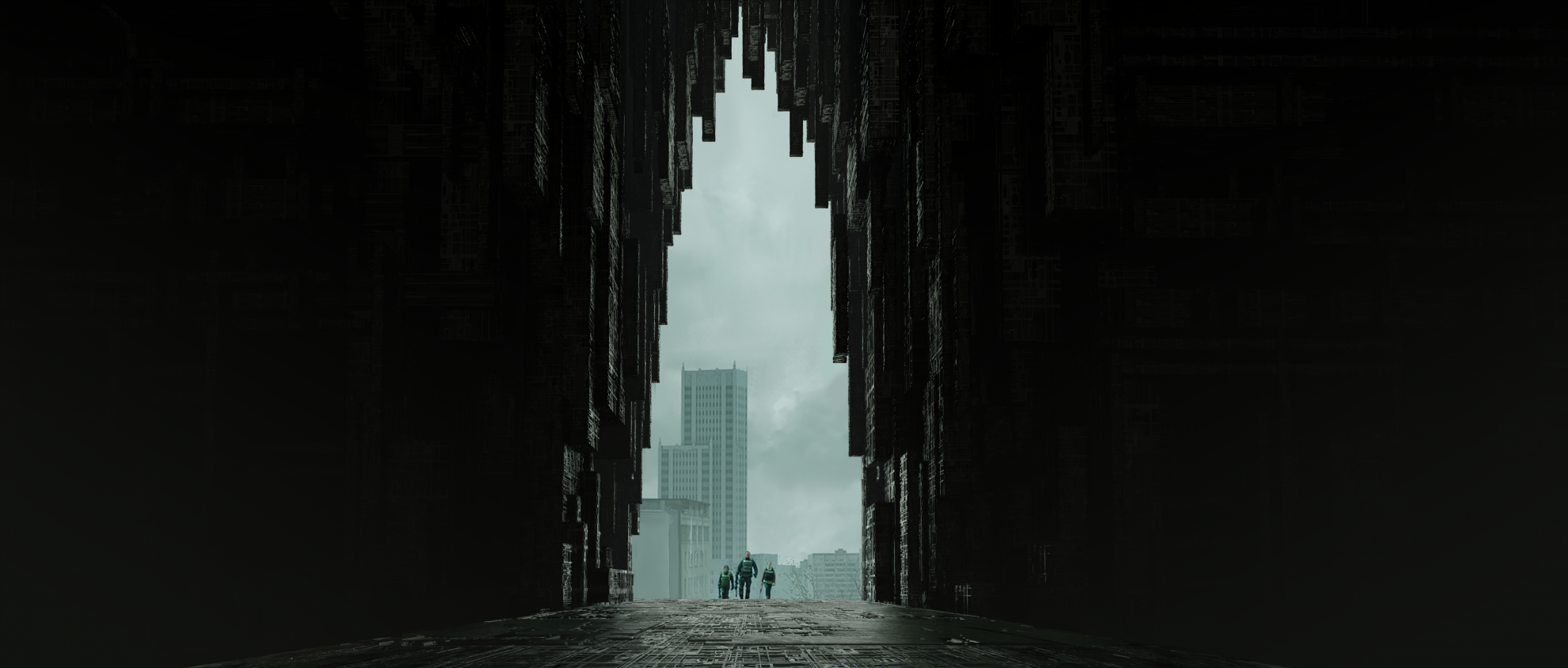
Does 1-2-3 Production own you, or are you affiliated with it?
We are part of 1-2-3 Production. Nobody owns anyone. We are one company. I am the general producer of 1-2-3 VFX. I am responsible for everything related to digital special effects, computer graphics, and visual solutions on our projects.
What do you do as a general producer?
I am responsible for keeping the studio running. I also make sure that it has projects and that these projects are completed on time. And most importantly, I make sure that the final result, the final graphics meet the original art concept and the ideas of producers and directors.
I’d like to ask you about your attitude to workflow management. For example, in an interview with Esquire you said, “I often have to explain to people that we are not tech workers, but artists.” Do you, as a general producer, VFX supervisor, and VFX director, have to get into IT a bit when it comes to organizing work because the production process is so complex and there are so many people involved in it? For example, study project management methodologies and apply them.
Of course. Our work is primarily related to people, and a computer is just a tool we use. All the ideas and artistic decisions regarding how to properly arrange work processes come from people. We have both a technological production chain and a production management chain that helps us build the right relationships between people.
Main Road Post have tried adapting Agile and Scrum to their format, and they have managed to find a solution that works for them. Do you use anything similar?
No. We have a standard, pyramid-shaped management system. We have departments, and these departments have heads, managers, and producers. And this whole chain leads to me and our producers, Vasilisa Lebedeva (Executive Director) and Daria Vasilyeva (Executive Producer of the studio).
Behind me is the Production Department. We prefer a more traditional management system. Agile is a very useful and interesting tool, and it’s great that Arman (Yahin, CEO and co-founder of Main Road Post) has managed to successfully implement it and show everyone that it actually works. Not many people believed that something like that could be done in our industry. He did it, and that’s very cool. But we are not yet ready to follow in his footsteps. If we find a way to implement Agile in the future, we will gladly do it.
For now, due to our enormous workload, we have chosen the traditional management system. As a leader of 1-2-3 VFX and other studios, I have been using this system for almost 15 years. I am used to it, and I doubt I could quickly switch to something else. At the same time, I can’t say Agile is miles better than other systems.
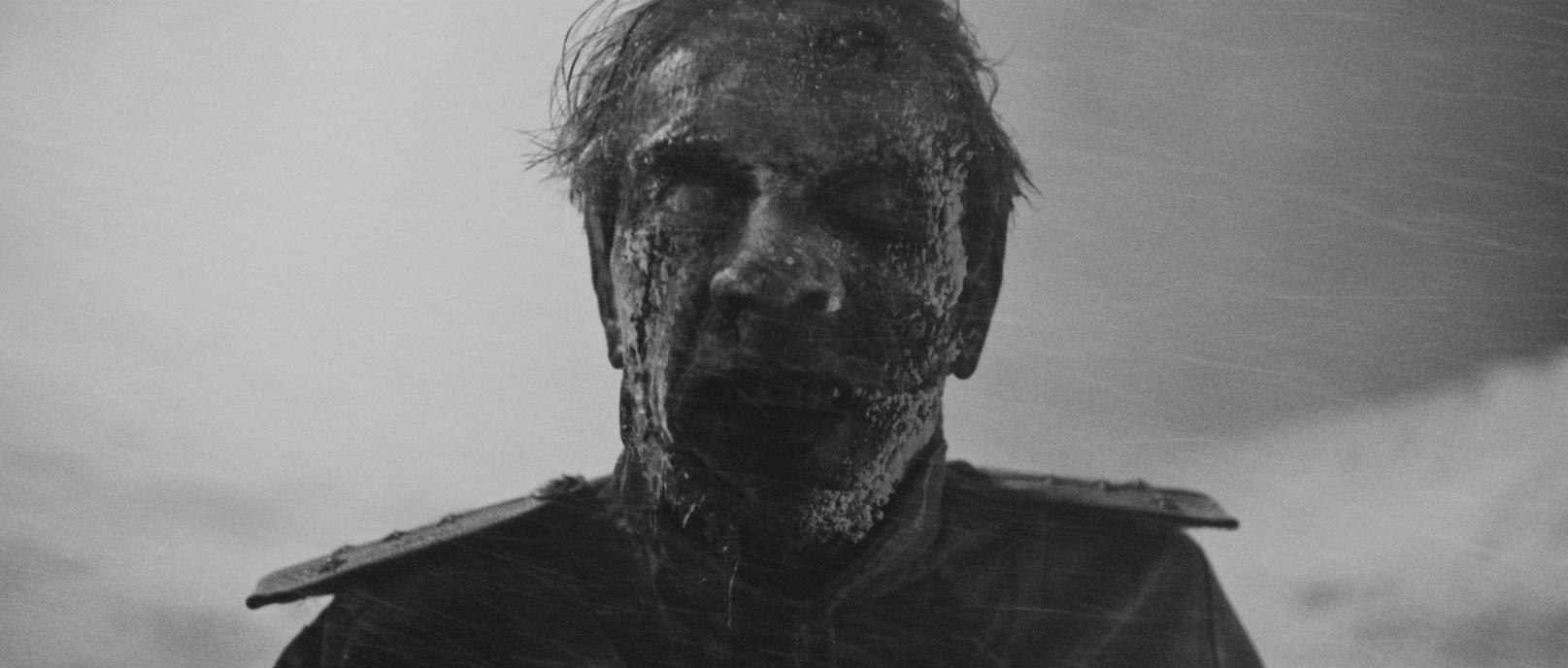
Let’s talk about teams and the people recruited into them. You’ve said before that about 70% of people leave and 30% stay.
A huge number of people leave the country. We’ve had three of our employees, who had worked at our company for only a couple of months, leave. You could say our studio was like a transit hub for them. We don’t take in young graduates who have just finished their studies and now are eager to relocate abroad. But recently, this trend has been spreading among people who have worked in the industry for 10-15 years.
In my opinion, this is very bad. We must try to create good working conditions in Russia. I’m talking both about money and interesting projects: two big reasons for leaving. It is easy to sit down and compare how much you will earn abroad and in Russia. Although no one really thinks about the high taxes and the nuances regarding rent, food, and so on. Once all this has been taken care of, you would have about the same amount of money left as you would in Moscow. We have very good salaries here. Even in St. Petersburg salaries are decent. This is not very true for other regions, but companies in Moscow pay well.
Freelancers who live in Russia and find jobs abroad end up with more money, because the cost of living here is lower, and they don’t have to pay high taxes.
But foreign employers are also not fools, they also know how to count. The market is currently stabilizing, leveling off. The fast money that people make in the West will start to gradually decrease at some point. Knowing the market prices for services here, the West will see that there is no need to pay more if people are willing to work for less. But if a person is being literally dragged abroad, they usually move, because many people want to try working at a different studio or in another country.
And that’s great. Let them go, watch, and gain experience. At some point, maybe in ten or 15 years, they may return and start introducing new technologies and managerial approaches, thereby moving the industry forward. There is nothing bad with people moving abroad to see how things are done there, but it is bad that this trend is becoming so widespread. I would prefer it if good specialists stayed in Russia and made quality products here.
Are you involved in the recruitment process? Do you interview people who want to work for you?
Almost never these days. I don’t have time. But I have Vasilisa and Daria, who handle the new job seekers. Sometimes these people come from the industry, and I already know them. There are not that many good specialists in general, so everyone knows each other.
In this case, there is no interview really. People just come and say that they want to change their job, work for us, or, say, earn more money because they now have a baby. And we say, “Of course, come and we’ll discuss everything.” And so our business relationship begins.
Many people live in other cities and countries, but are still good specialists. There are those who cannot leave home due to family reasons. For example, they have three kids, and their wife won’t cope alone. Before the quarantine, we would tell them to work from the office. But now we’ve realized that it’s okay to work from home. There are a lot of jobs for which you don’t have to sit in the office all day.
So we agree, for example, that a person will come to the office for meetings once a week. Then every day we call them and they submit reports.
Any company, regardless of how it is managed, always has accountability and control. Ask Alexander Gorokhov (the founder of CGF studio), and he will tell you that he has control and accountability, that they have group calls. Ask Arman (Yahin), and he will say the same. Direktsiya Kino, for example, has releases twice a day. Any company has control. Our meeting room is just across the hall, and they are discussing a project right now.
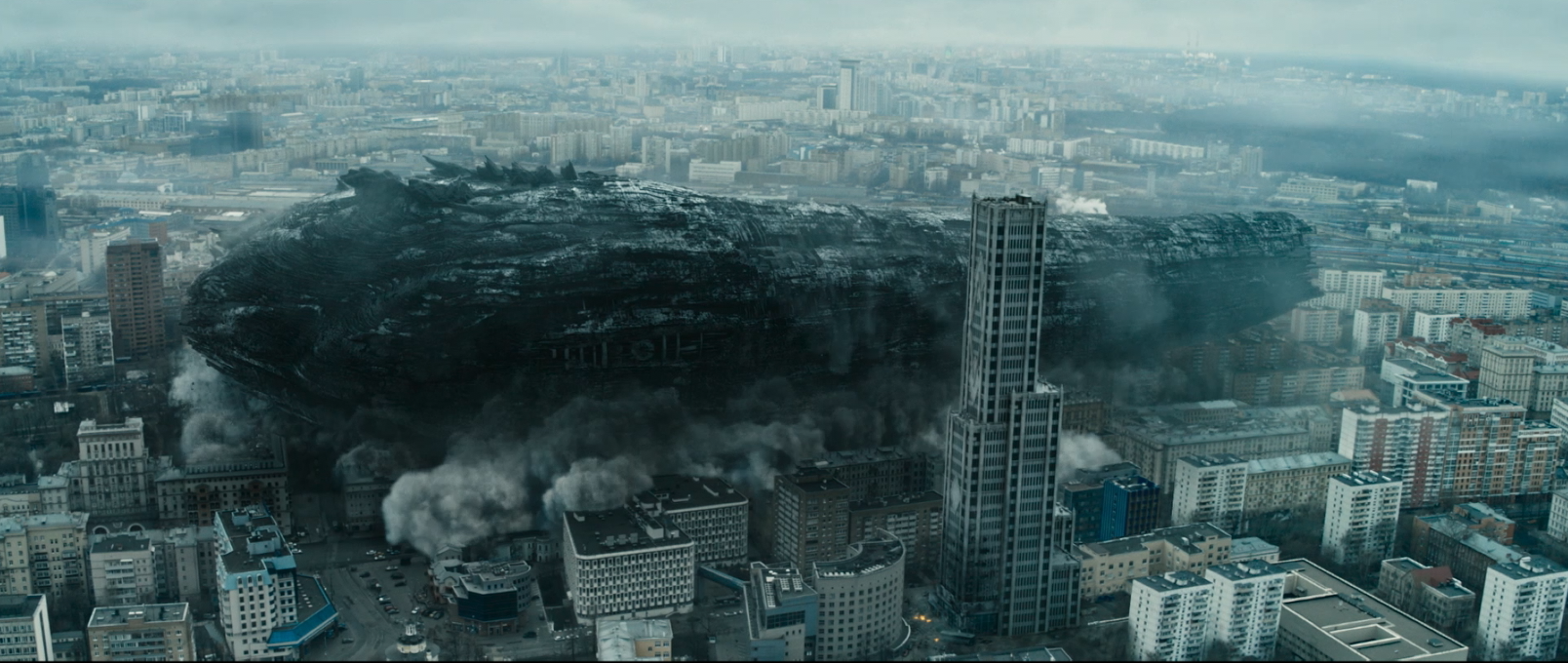
The situation with salaries you have described makes me think of the IT industry, where we see “rich” IT specialists getting offered a lot of money. Graphics is expensive, and people are ready to pay a lot for it. But with all the contractors and subcontractors involved in the process, specific individuals involved in the creation of graphics receive relatively small money.
If we talk about Russia, certain artists must also earn a lot. Maybe VFX studios should also receive interest from streamings and cinemas? There was recently a scandal involving Scarlett Johansson, who complained about receiving several millions less than she should have. Why is that?
Let’s start with the first thesis about expensive graphics. This is a huge misconception, because in Russia, we are talking about ridiculously small money. In the West, any graphics costs seven to ten times more. We’ve heard the estimates that people from abroad and the US in particular make for projects such as The Blackout, and they are twenty times higher than what the project actually cost.
They say, “We think it would have cost us this and that.” And we answer, “No, it cost us twenty times cheaper.” Many of them were very surprised. The fact that graphics is expensive is a big misconception. Expensive compared to what? There is no such term as “expensive”. It is an abstract concept. If we name a specific sum, we will see that graphics in Russia, similar in quality to what we see in Western movies, costs seven to ten times less.
Our producers like to say that graphics is very expensive. And yes, the work that would previously cost zero or a million rubles now suddenly costs ten. So they say it’s expensive. But it’s not. If you want a good, high-quality product, but for some reason you can’t make it yourselves and need digital technology to achieve the desired result, it will cost you.
If you want a quality product, you must pay for it. And if you want something quick and dirty, there are freelancers. You are free to use their services! It will cost much less, but you will lose control over the quality and production time, and will constantly worry.
Someone, either you or your post producer responsible for the project, will constantly worry whether things will be done in time for the DCP release and whether you will get a normal, convincing story by the time the project airs, and not something that looks like a cartoon… I have recently started watching the movie The Ice Road, and the graphics there are terrible from the very first scene.
It is a fairly low-budget movie, and there is a scene where trucks are riding around a quarry when an explosion occurs. No TV show in Russia would use such graphics, they would ask for something better. And I’m sure that the movie’s graphics cost much more than it would in Russia. So when you hear people say that graphics costs a ridiculous amount of money, you must understand that it’s not true. These sums are not ridiculous, they are actually very small. If you want to make a Marvel level movie, be prepared to pay for it.
When I said that graphics was expensive, I didn’t mean “expensive in Russia”. I meant that it is expensive everywhere, including Hollywood. That’s why I want to understand if it should cost as much as it does.
Of course. And even more so in Russia, because it is the result of efforts of a large group of people, of their intellectual labor. Any expert from any company is not just someone who has knowledge in a specific area. They have a very wide area of expertise: both artistic and technical, as well as the so-called hard skills and soft skills.
I think that all this should cost a lot. It can’t be cheap.
What needs to be done for all this to suddenly increase in price? Should people finally start showing appreciation for other people’s labor? I’m just trying to figure out why things are the way they are. Take the IT industry with its staggering salaries, for example.
I think you are mistaken. I have a lot of friends at Yandex and Mail.ru, and there are no giant salaries there.
If we talk about frontend, offers can reach up to 200,000 rubles for specialists with one year of experience and 200,000-250,000 rubles for those with one to three years of experience.
None of the companies I have named will offer you that much money if you have just a couple of years of experience. The maximum you will get is 80,000-100,000 rubles. Even 80,000 rubles will be hard to get, and it will come with lots of responsibilities. Such salaries don’t exist. This is utopia that someone wants us to believe in. Try finding someone who will pay you 200,000 rubles if you have a year of experience. You won’t. And if you do, it will be some shady company that will close down in a month.
Or they’ll give you a ton of responsibilities, and if you complain, they’ll tell you that you should be happy to mop the floor for that kind of money. Such salaries don’t exist in reality. Not for people with a year of work experience. If you’re a top-class specialist with ten or more years under your belt and lots of knowledge, then yes.
Okay, let’s rephrase. Will the salary level be different for specialists with three to five years of experience in VFX and IT?
No, it will be a little lower in VFX, by about 15–20 percent.
But you are going about it somewhat wrong. For example, let’s take two people: one of them has been doing nothing but coding for three to five years, while the other has used that time to become the head of a department, accumulating completely different knowledge. The second person now has more responsibility, as well as bigger and more complex tasks to solve. You can’t compare them. It’s like comparing a subway train operator and a taxi driver. Both are responsible for people’s lives, but they may have different salaries: the operator will receive more, and the taxi driver less. It’s the same with VFX and IT. You can’t compare them, these are different industries with their own specifics.
Let’s turn to rumors then. They say that in Russia, visual effects cost less than they should. You’ve said yourself that they should cost more. On the contrary, the IT industry is considered a place where you can make lots of money, so everyone wants to work there. What needs to be done for people to start talking the same way about VFX?
I think that most people working on visual effects have normal salaries. The shift did take place, and prices went up after the lockdown. At the studio, we are trying to optimize things and raise people’s pays. We have wonderful salaries, especially when half the country earns 30,000–35,000 rubles per month.
There is a certain price level in the industry, and if someone deviates from it too much, it means something is wrong. If someone is paid 20,000 rubles instead of 80,000, then something is amiss. And it’s the same if someone is paid 160,000 rubles instead of 80,000. Either it’s some kind of fly-by-night operation that will close very quickly, or there are lots of nuances that you need to study.
Let’s talk about interest from viewings and screenings.
This is all child’s talk. We do not make a product, we provide a service. People come to us and say, “Here is the money, we need computer graphics for a movie or a TV series”. This is a service. If we use our own money to make something, then it’s different. We have the rights to the final product and, when we sell it, we can negotiate the terms that will be favorable for us. But while we are providing services, people come to us with specific requests and ask us to do something for a specific amount of money. If we start demanding interest or something, they will simply leave.
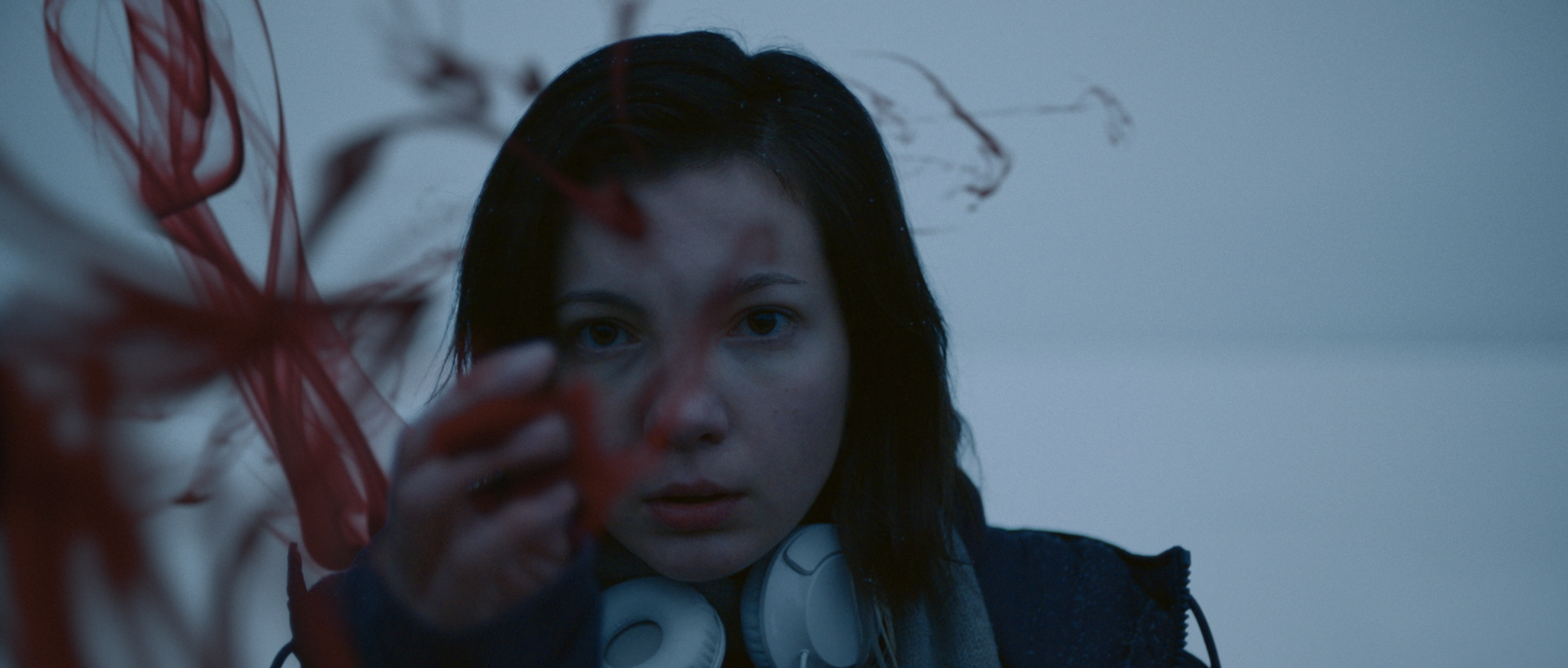
In your interview with Esquire, you said, “I managed to grow from a supervisor into a VFX director and producer.” But IMDb lists you as a supervisor of the TV series Dreams of Alice. Do you alternate what you do? How do you work?
I perform different functions in different projects. Take Cybervillage, for example. We are working on it together with Alexey Fomin and Sergei Vasiliev. This is our personal project, where I act as a general and creative producer. Sergei Vasiliev is our general producer and director, and Alexey Fomin is a supervisor, creative producer, and producer of the entire story. You can see the results of our work on the Birchpunck youtube channel.
In The Blackout, I was the director of digital special effects, while in Dreams of Alice I am more of a supervisor, because I didn’t take a big part in creating the visual effects. In Dyatlov Pass, I directed digital special effects.
I usually perform different functions in different projects. In some projects I act as a producer, in some — as a director, and in some — as a supervisor. Sometimes a project has a supervisor who has been working on it from the start and has come up with everything, but then leaves for some reason or gets transferred to another project.
I may also transfer an employee to a different project because that decision fits my needs and the needs of the studio, as said employee will do more good at their new position while I finish their previous project myself.
In essence, I supervise all the projects created by 1-2-3 Production. I am responsible for them regardless of who acts as their supervisor or VFX director.
You say that you provide services. Do people come to you and say that they want to hire you as a VFX director?
Yes, of course. They come and say that they want things done in a certain way. Most of the time people want to see me as a VFX director. But then we explain that we are currently working on five projects, and I am already involved in the three major ones. I may not be involved in a project directly, but I am still responsible for everything. The customers can call me, tell me what they like or don’t like, or ask me to change something. This also happens. People call and say, “We don’t like it. Technically, everything is perfect, but we don’t like the visual style. We want something more interesting.”
If the project is not in my direct line of sight, I switch to it for a couple of days. I meet with all the people involved, including the director, and we find a solution, come up with sketches, and chage the scenes that we don’t like. We never charge money for this, as it is all part of our job.
You have mentioned many times how you managed to grow and start doing more general things, and how you are responsible for the visual style and organizing the work process. Do you ever get a desire to do something with your own hands, like in the good old days?
Yes, I do. But I usually don’t have the time for it, especially when we are delivering the project. But it is often easier to make the changes I want myself, to open the script and quickly fix something. Otherwise, I will have to spend a lot of time explaining everything and waiting for an answer, and when I finally get the answer, I will see that everything has been done not the way I wanted to. If I have the time and I am near my computer or at the studio, it is easier to change everything myself.
Some of the projects you have worked on have very delicate graphics. There are no explosions, aliens, and so on. You’ve said, for example, that it was easier to create a three-dimensional forest through which the train would ride in Dyatlov Pass, because the landscape has changed a lot since the original events.
In terms of complexity, is there any difference between the graphics that everyone is used to — that is, the graphics that depict something that doesn’t exist in reality or, say, explosions, — and the delicate solutions?
Visual effects can be divided into several groups. There are those that require tricky artistic solutions. For example, when you need to show the landing of a spaceship, create a new planet, or make a scene where an actor is hallucinating. Such solutions are not always technologically complex. Sometimes they may be quite simple, but making them convey the right atmosphere or emotional state is much more difficult than using a certain technological solution. After all, it is technologically not so difficult to recreate a forest.
There are specific production stages. Once you have completed them all, you may get a normal looking forest. But recreating someone’s hallucinations or dreams is much more difficult, because it is not completely clear what you need to create. So there are complex effects of this type, and then there are also technically complex effects. For example, the destruction of a city is a technically complex task. It is clear enough, but it involves many stages and requires you to use a lot of technological solutions to make the scene look convincing and for it to be doable in a set amount of time.
Sometimes you’re working on a complex shot and you know for sure that you will complete it in three months. And other times it may be a three-minute scene with lots of complex elements. Then you need to be able to see that you, say, can’t handle that much data or don’t have enough human resources.
If that is the case, you choose technological solutions related to mass production. There are so-called invisible effects: they involve using chroma key, cleaning something up or removing something, and so on. They are a huge part of our job, because any TV series or movie has a great number of such effects. For example, it is faster to clean up a camera on a house than to waste time dismantling it and getting permission to do it. The audience may not even be aware of such solutions. They will only notice them if everything has been done poorly.
Do people who work in filmmaking see these effects as a way to make their jobs easier or as something that gives them additional opportunities?
It depends. There are directors and there are other specialists. A director is someone responsible for specific tasks, just like an operator, a stuntman, or a costume designer. All this makes up filmmaking or TV show production: they are one and the same now.
For a director, it’s more of an additional opportunity. It allows them to bring to life the ideas they simply could not implement before. For other departments involved in the process, this is a solution that saves them money. Sometimes it lets them relax, as they know full well they would have spent a lot of resources to dismantle a certain object or, for example, block a road in the background. They know that it is easier and faster to have the unnecessary objects removed from the scene for a certain amount of money.
For some industries and representatives of certain filmmaking professions, graphics is indeed a way to make life easier. But it usually comes with a lot of other tasks. Overall, graphics doesn’t make people’s lives easier, no. You can see it in the way the number of shifts has decreased and in the way the production period is shortening, because everyone understands perfectly well that now they need to do this, this, and that.
These are the problems that post-production faces. Producers ask them to do things not related to post-production at all. They have the same production cycle, and it is getting shorter and shorter. If, for example, the administration used to negotiate with five objects before, now they have to negotiate with twenty in the same amount of time. Because if something takes too long, then others will have to clean it up or change it, or find other solutions. I can’t say that graphics has made things much easier, but it has certainly opened up lots of opportunities.
Do you watch your movies after you have finished working on them?
Yes, of course. Although the studio makes lots of projects, and I don’t always have time to watch the TV shows that were produced not by me personally, but by my employees. But I try to watch everything we make. Sometimes I have the opportunity to do it during the production period, because there are reviews and releases. But I may also lose sight of some small projects. If that happens, I just give them to other people from the studio, and they take care of them.
I can see everything either in the end, or, for example, when I need to watch some important parts. Do I watch it all later at home? Yes, me and my wife make sure to watch all our big projects. She shows me released projects shot by the film company she works at, and I show her ours.
To some extent, this is all done by the people who work behind the scenes. Every project involves a huge number of people hardly anyone knows about. But industry awards are important to everyone, right? Are they important to you? For example, the APKIT award for Best Visual Effects?
I have that figurine in the next room. Awards are important, yes. It’s great when people can appreciate your work and tell you that you are the best, and when this decision comes not from a single person, but from a whole group of people. Their opinion is authoritative, the industry listens to it. When a person receives an award and their project is declared the best, it becomes a kind of a measure of respect within the industry.
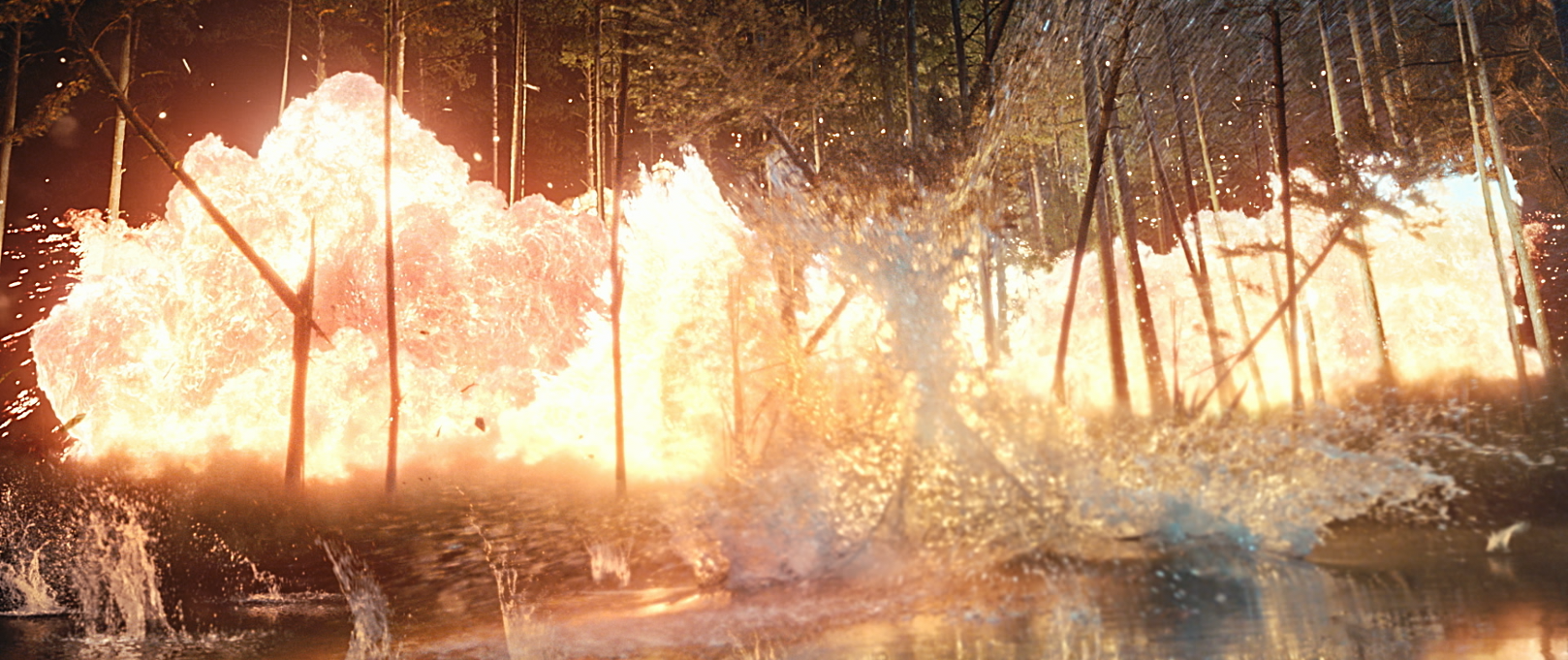
The Epidemic is available on Netflix, and Dyatlov Pass can also be found on foreign streaming services. Does this make you feel like a celebrity in the Russian market?
No, it doesn’t. Hubris is a bad thing. You should either get rid of it fast or not develop it at all. I am always working, I have no time for this. I have been the leader for a very long time. The feeling that I am better, bigger, or cooler than someone else went away during my first year of work.
Because you see right away that you are not better or cooler, you just have a lot of responsibility and you make harder decisions. I think the word “celebrity” is not applicable to our industry. We are simply adequate people, and we are interested in what we do, and not who we are.
Do you separate your work life and personal life? From the way you are talking, you work very hard.
I have me-time, but no, there is no strict separation. There are periods when projects are done inside the studio, and I don’t have to go to large venues to shoot things and approach everything with great responsibility. Then I can set aside some time to at least spend the weekends at home.
But when we’re working on a set or the project is large and complex, I mainly spend my weekends at the office, in the field, or on the set. So yes, sometimes life and work are hard to separate. For people who do this seriously, work is a part of life. We can’t separate one from the other and say, “This is work, and this is my life.”
You’ve said that you don’t waste time on social media. I guess you don’t use TikTok either.
No, I don’t. I don’t have it and I never did.
Right now, it gives the representatives of “invisible”, little-known professions an opportunity to show how everything really works. Sila Sveta has an account, and so does Parovoz, whose TikTok account about animation has lots of followers.
Do you think it’s a good idea for people to talk about their everyday work and educate others, so that they get an idea of not only what you are doing, but also of how great it is that you have unique skills and invent new worlds?
Yes, of course, this is definitely worth doing. There is nothing wrong with it. 1-2-3 Production has SMM managers who work with the production team and with us. When we gave speeches during the creative week, our SMM manager and PR director came to take pictures and cover the event. On September 1, I gave a lecture at a school for tenth graders. I don’t think they really understood who I am and what I do, but they still asked a few questions. The lecture was organized as part of Gazprom-Media’s educational program. I think Gazprom does a great job promoting new industries and jobs in Russia in every possible way, so that schoolkids and students know what interesting professions exist out there, in addition to those that everyone has heard about. Most people think they can choose between becoming an engineer, a medic, an athlete, and a general manager.
And these programs help young people to understand that there are lots of interesting professions in Russia that are growing and are in demand. They could learn to do stunts or become make-up artists, production designers, and VFX specialists.
For many, visual effects are just computer graphics, a gray box. You put something in it and the graphics appear. Few teenagers know how many different jobs there are in our industry. Most think of us as people who sit at computers and produce movie scenes. They don’t know about modeling, texturing, shading, and lighting, as well as animators, concept artists, and so on. And when we come and tell them about it, they say, “Cool.” They realize they can learn these professions and work in this industry.
In your Esquire interview, you said it would be nice to have your own school and teach people. Do you still want to do it?
Yes, we still have these plans. It all depends on finances, on how much it will cost. Moreover, it will cost us not only money, but also our time, emotions, and energy. We need teachers, and if we take people from the studio, they will have to switch from production to educational activities.
The option to create a school inside our organization is still on the table, but we are more inclined to collaborate with the already existing schools.
We want as many talented people as possible to come into the industry.
Let’s talk more about Cybervillage. You say you made this project yourself. Was it just for your own pleasure?
Sergei Vasiliev and I came up with a new format and interesting stories about the future of Russia. All in a lighthearted manner!
We fooled around, thinking about what it could look like, and even began to write several stories. Then I got very busy with Dyatlov Pass, and Sergei went on and filmed a story about Nikolai from the Ryazan region. It was an impromptu piece. When he showed it to me, I said, “Cool, let’s continue.”
We immediately found Alexei Fomin, who helped Sergei with filming and graphics. He actually made the graphics. You could say they made it out of sheer enthusiasm. It cost nothing, no one paid any money for it. Now we pay them money for some of the episodes.
Do you get that money from advertising? You do have integrations now.
We have integrations and our personal money. If we need to pay for something, we do, but the sums are not that huge. The core team consists of three people. Roman Korobko, a great cameraman, went our way. But almost the entire team that created the pilot project is still there.
We have received great help from Ivan Golomorzyuk, Valery Fedorovich, and Evgeny Nikishov. At first we didn’t have an executive producer and did everything ourselves the best we could. But when we realized that we wanted to release monthly episodes and formed our production schedule, it turned out we really needed an executive producer, as well as help with the casting director. We needed someone who would find actors and work with them. Then we found a great art director. At first, the project was fueled just by our enthusiasm, but now it has already started to grow. Sometimes we had to go negative, but now we are starting to cover these negatives with integrations. The project is gradually growing. You can’t just make jokes, you need some drama, too. Valery and Evgeny are helping us create a storyline and add some dramatic levers that we use to make the story more engaging.
Was the success of Cybervillage a surprise for you?
Of course. I was working on Dyatlov Pass at the time, and the guys shot the pilot episode and said, “We are releasing.” The first two days after the release were quiet. And then Alexei Fomin and Sergei Vasiliev got a little scared. They started forcing the project. They would write to everyone and ask them to watch the pilot. And things took off! In the next three or four days, we got a million views, then two, three, four, and five. It snowballed very fast!
We wanted to make something nostalgic, a fantasy about the future based on our past. When Sergei Vasiliev started working on the idea, he came up with something great. We initially wanted to make an episode titled Love and Pigeons in the Future (Love and Pigeons is a popular Soviet romantic comedy), with quotes and jokes from the original movie. In the beginning, we wanted to replace the pigeons with copters and make several separate stories. And Sergei combined them into a single good story with all the references, thus creating the show’s universe, which we continue to develop further.


